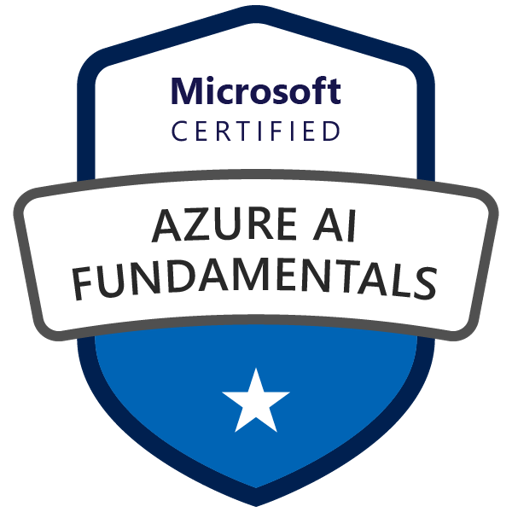Microsoft Azure AI Fundamentals Practice Test (AI-900)
Use the form below to configure your Microsoft Azure AI Fundamentals Practice Test (AI-900). The practice test can be configured to only include certain exam objectives and domains. You can choose between 5-100 questions and set a time limit.

Microsoft Azure AI Fundamentals AI-900 Information
The Microsoft Certified: Azure AI Fundamentals (AI-900) exam is an entry-level certification designed for individuals seeking foundational knowledge of artificial intelligence (AI) and machine learning (ML) concepts and their applications within the Microsoft Azure platform. The AI-900 exam covers essential AI workloads such as anomaly detection, computer vision, and natural language processing, and it emphasizes responsible AI principles, including fairness, transparency, and accountability. While no deep technical background is required, a basic familiarity with technology and Azure’s services can be helpful, making this certification accessible to a wide audience, from business decision-makers to early-career technologists.
The exam covers several major domains, starting with AI workloads and considerations, which introduces candidates to various types of AI solutions and ethical principles. Next, it delves into machine learning fundamentals, explaining core concepts like data features, model training, and types of machine learning such as classification and clustering. The exam also emphasizes specific Azure tools for implementing AI solutions, such as Azure Machine Learning Studio for visual model-building, the Computer Vision service for image analysis, and Azure Bot Service for conversational AI. Additionally, candidates learn how natural language processing (NLP) tasks, including sentiment analysis, translation, and speech recognition, are managed within Azure’s language and speech services.
Achieving the AI-900 certification demonstrates a solid understanding of AI and ML basics and prepares candidates for more advanced Azure certifications in data science or AI engineering. It’s an excellent credential for those exploring how AI solutions can be effectively used within the Azure ecosystem, whether to aid business decision-making or to set a foundation for future roles in AI and data analytics.